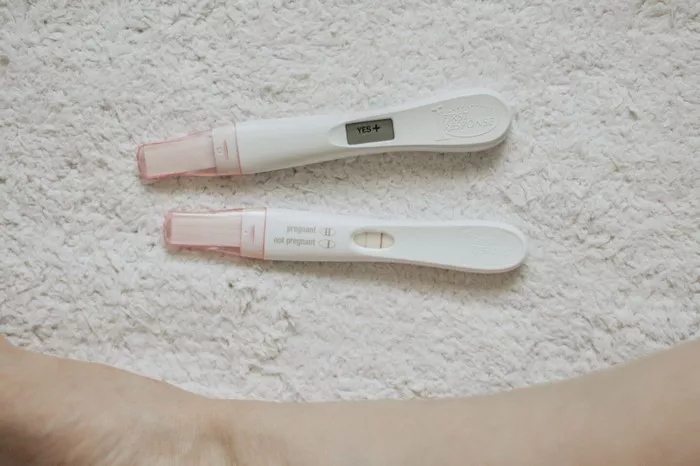Missing your period can be unsettling—especially if your pregnancy test reads negative. While pregnancy is often the first thought when a period is late, there are several other possible explanations. A negative test result doesn’t always mean you’re not pregnant, and many other factors can affect both your menstrual cycle and test accuracy.
In this article, we’ll explore 6 potential causes of a missed period with a negative pregnancy test and what you should consider doing next.
1. Testing Too Early
hCG Levels May Not Be High Enough
One of the most common reasons for a negative test with no period is testing too early. Home pregnancy tests work by detecting human chorionic gonadotropin (hCG), a hormone produced during pregnancy. However, it can take several days after implantation for hCG to rise to detectable levels in urine.
When to Retest
If you tested before your period was due or just a day or two late, your body may not have produced enough hCG for the test to detect. Wait a few more days and try again, ideally using first-morning urine when hCG is most concentrated. For best accuracy, follow the test’s instructions closely.
2. Irregular Menstrual Cycles
Hormonal Imbalance or Lifestyle Factors
If you usually have irregular periods, it may be difficult to know exactly when your period is “late.” Hormonal fluctuations, polycystic ovary syndrome (PCOS), stress, or changes in weight and activity can all lead to irregular cycles.
You May Not Be as Late as You Think
What seems like a missed period could actually be a delayed cycle due to ovulating later than usual. In this case, your pregnancy test might be negative simply because you’re not as far along in your cycle as you believe.
3. Stress and Emotional Factors
High Stress Can Affect Ovulation
Emotional stress is a well-known disruptor of hormonal balance and can affect your hypothalamus—the part of your brain responsible for regulating reproductive hormones. High levels of stress can delay or suppress ovulation, which can, in turn, delay your period.
Common Stressors
Major life changes such as work pressure, family issues, academic demands, or anxiety about becoming pregnant can all impact your menstrual cycle.
4. Underlying Medical Conditions
Polycystic Ovary Syndrome (PCOS)
PCOS is a common condition that affects hormone levels, often leading to irregular or missed periods. Women with PCOS may go months without menstruating and may also experience difficulty conceiving.
Thyroid Disorders
Both hypothyroidism (underactive thyroid) and hyperthyroidism (overactive thyroid) can impact menstrual regularity and fertility. A disrupted thyroid can alter the levels of key reproductive hormones, affecting both ovulation and your period.
Premature Ovarian Insufficiency (POI)
Also known as early menopause, POI occurs when the ovaries stop functioning normally before the age of 40. This can cause missed periods, fertility issues, and symptoms similar to menopause.
5. Recent Use of Birth Control
Coming Off Hormonal Contraceptives
If you’ve recently stopped using hormonal birth control, such as the pill, patch, or injection, it may take time for your cycle to regulate. Some women experience delayed or missed periods for a few months as their bodies adjust to the absence of synthetic hormones.
Starting New Birth Control
Conversely, starting a new method of birth control can also temporarily disrupt your cycle. Some women experience irregular bleeding, missed periods, or lighter-than-normal flow during the adjustment phase.
6. Perimenopause or Natural Cycle Changes
Approaching Menopause
Women in their late 30s to 40s may begin experiencing perimenopause—the transitional period before menopause. This phase is characterized by hormonal fluctuations that can cause missed periods, changes in cycle length, and symptoms like hot flashes or sleep disturbances.
Normal Cycle Variations
Even in women who aren’t approaching menopause, occasional missed periods can happen. A single skipped cycle doesn’t always signal a serious issue. Factors like illness, travel, or intense exercise can all contribute to a one-time delay.
What to Do Next
Retake the Pregnancy Test
If your period is still late after a few days and your test was negative, retake it using a new test and first-morning urine. Be sure to check the expiration date on the package and follow the instructions exactly.
See a Healthcare Provider
If repeated tests are negative and your period still doesn’t arrive within a week or two, it’s a good idea to consult your healthcare provider. They may:
- Perform a blood test to check for pregnancy
- Conduct a pelvic exam
- Order hormone panels or an ultrasound to assess for underlying issues
Track Your Symptoms and Cycle
Keep a record of your cycle dates, symptoms, and test results. Apps and journals can help you identify patterns that may give insight into hormonal or lifestyle causes for the delay.
When to Worry
While a missed period with a negative pregnancy test isn’t always cause for alarm, certain symptoms warrant immediate medical attention:
- Severe abdominal pain or cramping
- Heavy bleeding or spotting after a missed period
- Sudden weight gain or loss
- Signs of thyroid dysfunction (e.g., fatigue, hair loss, heart palpitations)
- Vision changes or headaches
These could indicate conditions that require prompt evaluation.
Final Thoughts
A late or missed period accompanied by a negative pregnancy test can be confusing and stressful. But rest assured—there are many potential reasons that don’t involve pregnancy, from timing issues and stress to hormonal imbalances or medical conditions.
Understanding your cycle, testing at the right time, and knowing when to seek medical advice can help provide clarity. If in doubt, don’t hesitate to reach out to your healthcare provider for personalized support and testing.
You Might Be Interested In:

